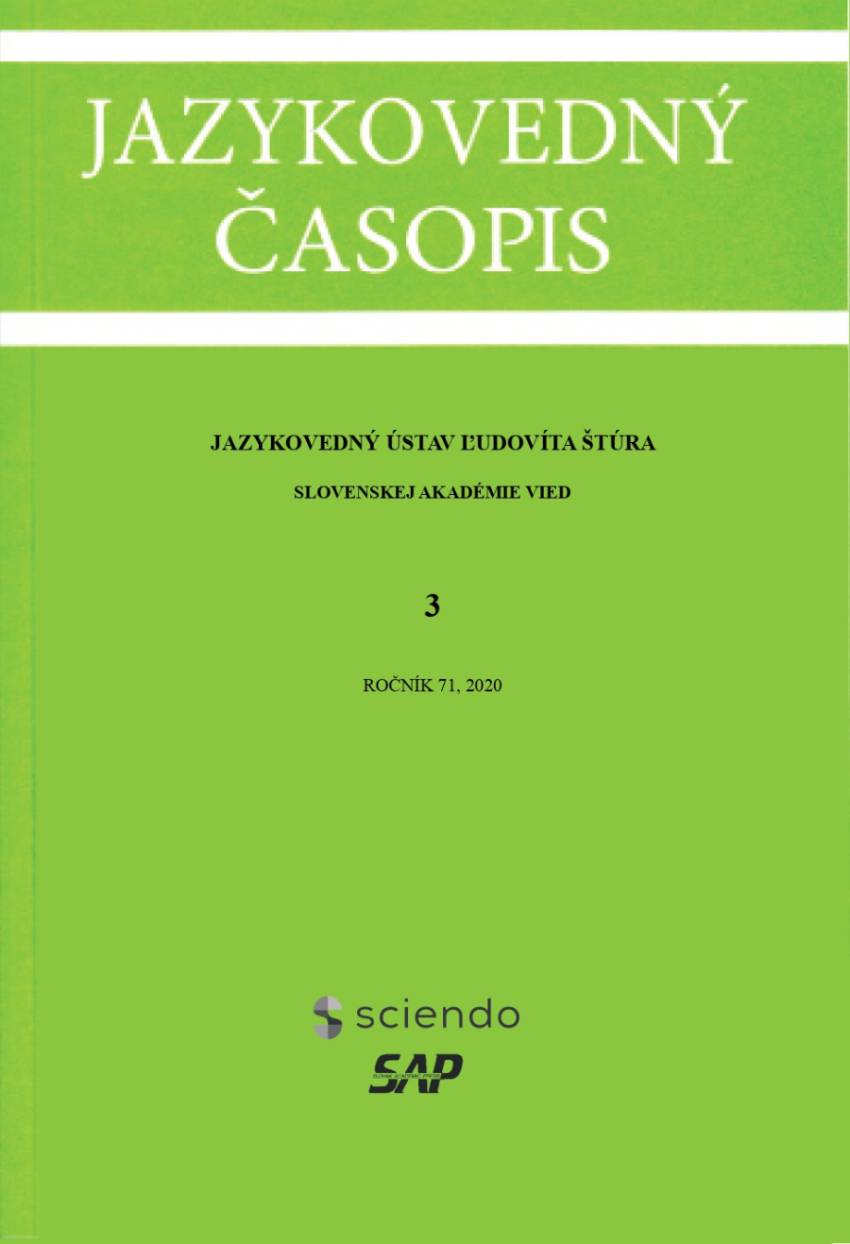Paradigma maďarských slovies zakončených na morfému -ika jej súčasný stav v systéme slovies a v komunikačnej praxi
The paradigm of Hungarian -ik verbs and their current position in the verb system and the language use
Author(s): István KozmácsSubject(s): Language studies, Language and Literature Studies, Theoretical Linguistics, Applied Linguistics, Morphology, Sociolinguistics, Finno-Ugrian studies
Published by: SAV - Slovenská akadémia vied - Jazykovedný ústav Ľudovíta Štúra Slovenskej akadémie vied
Keywords: typology; conjugation; medial-reflexive conjugation; Hungarian -ik verb; linguistic discrimination;
Summary/Abstract: The article deals with the typology of the paradigms of Hungarian verb and describes the phenomenon of the originally medial-reflexive -ik verbs of Hungarian. The article presents the problems caused by the use of the paradigm revived by the Hungarian language renewal in the 19th century and compares the use of the -ik verbs by bilingual Hungarian students in Slovakia with their contemporaries in Hungary. The result of the study shows that Hungarian high school students in Slovakia are more likely to search for standard variants compared to their Hungarian peers if they feel that using a non-standard solution could lead to a negative value judgment.
Journal: Jazykovedný časopis
- Issue Year: 71/2020
- Issue No: 3
- Page Range: 393-408
- Page Count: 16
- Language: Slovak

